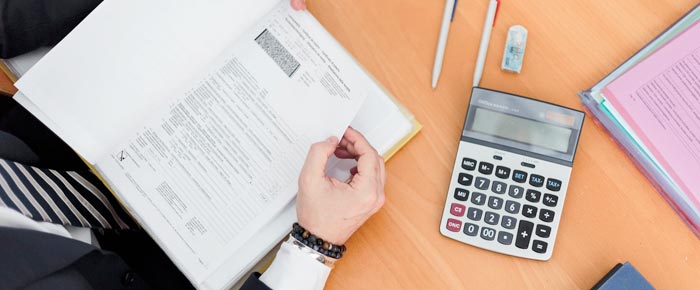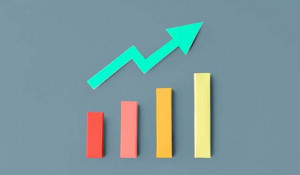A basic guide to consolidating your debt in New Zealand

By merging your high interest, unsecured debts into one loan or credit card you can simplify your debts and gain control of your finances.
In this guide we will delve into what debt consolidation is, the type of debt consolidation loans available and help you determine whether or not debt consolidation will suit your financial situation.
You should consolidate your debt if:
- You have multiple short-term loans and high interest debt.
- The majority of your debt lies in retail accounts, short-term loans and credit cards.
- You’re finding it hard to manage multiple debts.
- You have equity in your home loan and would save money by consolidating using this equity.
- You have a good credit score and could secure a low interest rate on a debt consolidation loan.
When you shouldn’t consolidate your debt:
- You’re debt is made up mostly of large, long-term loans.
- You have no equity in your home.
- If you will end up paying more in interest or in the form of your monthly payment than you are currently paying on the sum of all your smaller loans.
- You will not have sufficient income to repay the larger debt consolidation loan.
Find out if debt consolidation is suitable to your situation, if you qualify and how to make an application.
As detailed above, debt consolidation is ideal for those who have multiple unsecured debts or a secured loan and a few unsecured loans and cannot manage the debts or want to simplify their finances and have a single monthly or weekly repayment to worry about.
Types of debt consolidation loans
Typically you can make use of three credit options to consolidate your debt. This includes home equity loans, personal loans and credit cards. The consolidation option that you choose should be based on your individual situation and goals.
Debt consolidation loans can be secured and unsecured. The secured option offers you a lower interest rate and may enable you to borrow a higher sum. Unsecured loans are ideal for smaller debts such as short-term loans, store accounts credit card balances.
Consolidating debt with a credit card
Consolidating debt using a credit card can save you a lot of money if done right however, you must be able to make the required payment or you may make your debt situation worse.
The best option is to obtain a 0% interest credit card but, if you don’t qualify for one a low interest rate credit card will do. If you can pay off the credit card prior to the expiry of the 0% interest period you will be saving a lot of money.
The limit of this method of debt consolidation is that your credit card will come with a limit and it may be insufficient to transfer and repay all your debts.
Consolidating your debt with a personal loan
When you read about debt consolidation loans in New Zealand this is usually the type that is being referred to. You simply apply for a new personal loan that is sufficient to repay all of your current debts and then you will have to make the repayments on this loan.
You will have a set loan term and a set interest rate and will have to make monthly repayments as per the loan agreement.
Consolidating your debt using home equity
If you’ve been paying off your home loan for a number of years you may have the option of approaching your home loan provider and requesting an equity release.
This essentially allows you to withdraw a portion of credit that you have in your home loan, what is usually called equity, and use this loan to repay all your other debts.
You must bear in mind that although this is usually the cheapest way to consolidate debt, if you don’t manage your repayments effectively you may lose your home.
How to compare debt consolidation loans in New Zealand?
The easiest and most effective way to compare debt consolidation loans in New Zealand is to use a loan comparison website.
Once you’ve decided on whether you need a secured or unsecured loan you can compare interest rates as well as the APR’s or annual percentage rates of the various options.
Do not be tempted to choose a loan based solely on interest as you may incur fees and other costs which you did not initially take into account.
Finding out the maximum loan amount on offer and the loan terms available by various lenders prior to filling out a loan application is always a smart move.
Does consolidating you debt affect your credit?
Consolidating your debt does not affect your credit negatively. You are essentially repaying your debts and taking out another loan. As long as you maintain your repayments on the new loan your credit score will actually improve over time.
Debt counselling and debt management on the other hand may cause your credit score to be negatively affected. If on the other hand, you fail to repay this larger loan, your credit score will be affected.
Will a lender check my credit score when I apply for debt consolidation?
When you apply for a debt consolidation loan a lender is obliged to perform a credit check and will base the loan offer on the results of this credit check.
If you have a bad credit score you may, unfortunately, receive a high interest rate or will be subject to a smaller credit limit than what you need to cover all of the desired debts.
What happens after you consolidate your debt?
Once you’ve consolidated all of your debts you will simply have to keep up with the repayment on the new personal loan, credit card or your mortgage repayment. In order for you to stay on the path of becoming debt free you must commit to these repayments and not take on any new debts.
By avoiding taking on new debt you will ensure you can afford your repayment and not overextend yourself. This will enable you to become debt free as well as retain sufficient income to live comfortably. You can also start saving money on a regular basis and ensure you can afford the things that you want.
Saving money while repaying debts can have the following benefits:
- With your new large personal loan you may not qualify for more credit and your savings will act as a safety net in the event of an emergency.
- If you are short on your consolidation loan repayment you can use these savings to ensure you keep up with the repayments and therefore protect your credit.
- Savings allow you to access cash when you need it for non-emergency situations without taking on credit.
- Savings allow you to make investments, start a business or pursue other passions debt free.
Finally, remember that debt consolidation in New Zealand may be a very popular option for those who are struggling to manage their debts but it is not the solution for everyone. If you cannot afford to make the monthly repayments your debt situation could deteriorate and your credit will be adversely affected.



